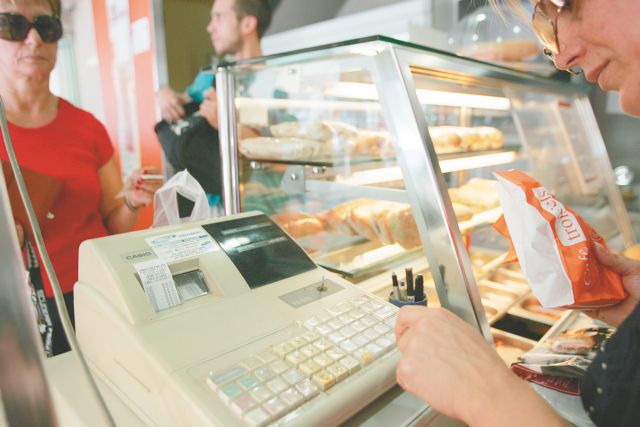The Ministry of Finances has attempted to sooth creditor concerns regarding the imminent VAT reform, buy introducing three different rates, rather than two as previously rumored and debated.
Sources have told To Vima’s that the latest proposal at the Brussels Group talks involves three VAT rates: the main tax rate will be 18%, while the two lower ones will be 15% and 7% or 8%.
According to the proposal, the 18% rate will apply to cash purchases, while the 15% rate will apply to card purchases, essentially granting a 3% discount for the use of the cards. By promoting the use of credit and debit cards the government aims to tackle the rampant tax evasion in the Greek economy.
The lower rate will apply to essential goods, such as food and medication, although the Ministry is being pressured into including various food products in the higher tax bracket. It remains uncertain how tourism will be taxes, with the government gear to applying the 15% rate.
Meanwhile, the creditors are pressuring the Greek government into a 20% high tax rate, with a lower 7% rate for medication and some food products. Under this plan, the cost for public utilities would soar, as the current VAT rate is 13%, which many government officers have warned that will not pass in Parliament.
Reactions over VAT hike in food
In 2014 the overall turnover in the food industry amounted to 6.2 billion euros, with the government collecting 810 million euros from the 13% VAT that applied. By increasing the VAT in food to 18%, the government will expect to earn a further 312 million euros, however many within the industry warn that such a hike will deregulate the market had a dramatic impact on consumption.
In September 2011 the government increased the rate in food, drinks and alcohol fro 13% to 23%, which resulted in many businesses being forced to shut down, as consumption declined. Between September and December 2011 sales dropped by about 40%, which in turn lead to a surge in tax evasion, undeclared employment as businesses were unable to cope with the increase.
When the VAT was restored to 13% in August 2013, about 100,000 new jobs were created in the food industry and the sector began to grow. The positive trend in this industry may be at risk though, should the government be forced to increase the VAT once again.





